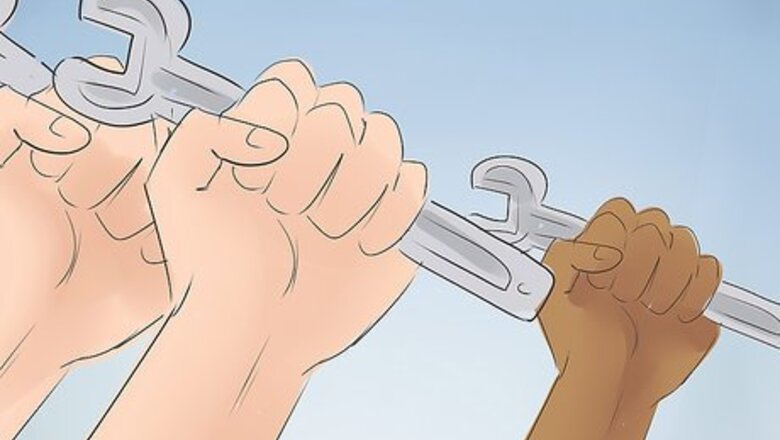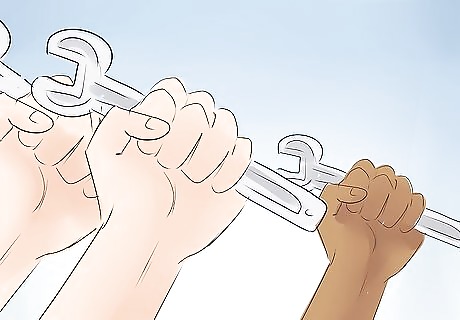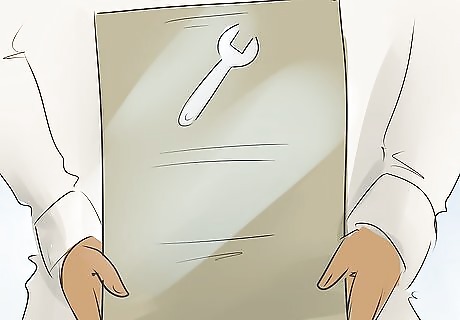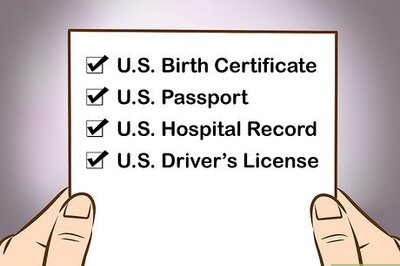
views
X
Expert Source
Greg JeiranyanLicensed Plumber
Expert Interview
If you want to know how to become a journeyman plumber, follow these guidelines.

Join a local plumbers' union. A union can provide a fast track to your ultimate goal of becoming a journeyman plumber. But because of the high demand for membership, they can be hard to get into. Unions offer apprenticeship programs that blend classroom study and hands-on experience. Most programs span 4 years, after which novice plumbers can apply for their journeyman's license. Some of the minimum standards for acceptance in a plumbers' union include: Age: Most states require apprentice plumbers to be at least 18 years old. Education: A high school diploma or GED is a condition of acceptance to most plumbers' unions. Sponsor: Most applicants are required to have a union contractor as a sponsor. Documentation: Applicants must be able to prove their legal right to work in the United States. Under most circumstances, a Social Security card and driver's license are acceptable forms of identification.

Enroll in a trade school. Because the competition for membership in plumbers' unions is so keen, many aspiring plumbers learn the skills of the job in a formal educational setting. Most trade schools provide the same level of instruction as unions and have job-placement programs, but they require tuition payments and don't pay apprentices like unions do.

Contact plumbing contractors that provide apprenticeship programs. Small contractors look for motivated individuals, offering them plumbing apprenticeships that are geared toward the type of work the company specializes in. These training programs are often paid positions, but sometimes don't provide comprehensive instruction in all phases of the trade.

Obtain state certification. Most states require aspiring journeyman plumbers to pass a licensing exam. Exam formats vary from state to state but generally test the applicant's knowledge of state and federal plumbing codes, blueprint and building-plan reading, and installation, maintenance and repair techniques over a broad range of plumbing systems. Before sitting for the exam, applicants must meet certain conditions, including: Completion of a certification program through an accredited trade school, plumbers' union or licensed contractor. This covers most classroom work, including blueprint reading and familiarity with state code. Completion of an approved plumbing apprenticeship of at least 4 years under the supervision of a master plumber. This affirms the applicant's hands-on experience in the field.




















Comments
0 comment